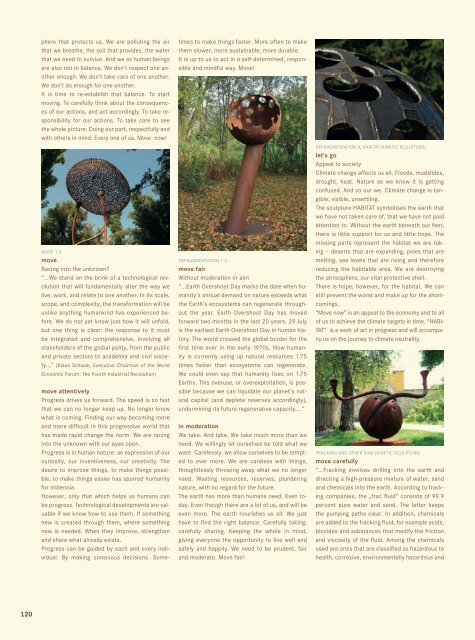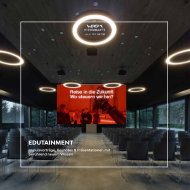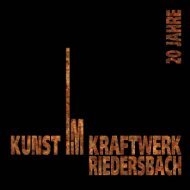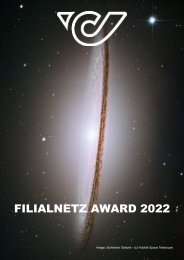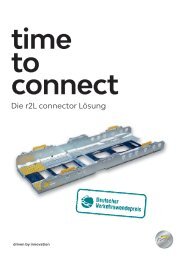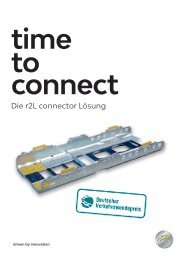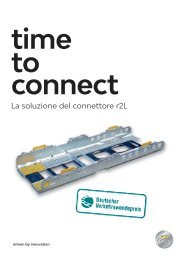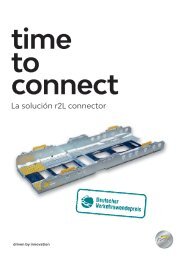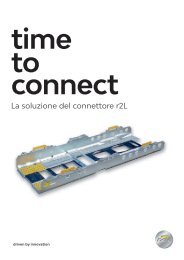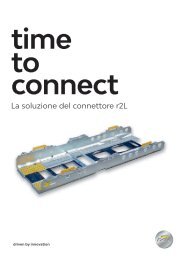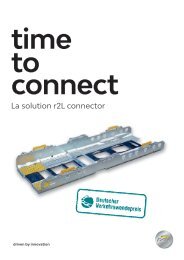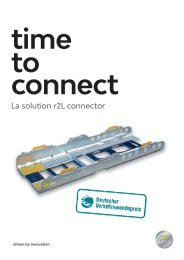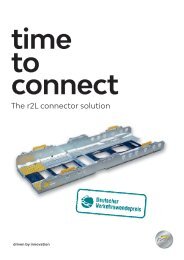Move_Hartwig Mülleitner
10 Jahre Stahlskulpturen
10 Jahre Stahlskulpturen
Erfolgreiche ePaper selbst erstellen
Machen Sie aus Ihren PDF Publikationen ein blätterbares Flipbook mit unserer einzigartigen Google optimierten e-Paper Software.
phere that protects us. We are polluting the air<br />
that we breathe, the soil that provides, the water<br />
that we need to survive. And we as human beings<br />
are also not in balance. We don’t respect one another<br />
enough. We don’t take care of one another.<br />
We don’t do enough for one another.<br />
It is time to re-establish that balance. To start<br />
moving. To carefully think about the consequences<br />
of our actions, and act accordingly. To take responsibility<br />
for our actions. To take care to see<br />
the whole picture. Doing our part, respectfully and<br />
with others in mind. Every one of us. <strong>Move</strong> now!<br />
MOVE 1-3<br />
move<br />
Racing into the unknown?<br />
“...We stand on the brink of a technological revolution<br />
that will fundamentally alter the way we<br />
live, work, and relate to one another. In its scale,<br />
scope, and complexity, the transformation will be<br />
unlike anything humankind has experienced before.<br />
We do not yet know just how it will unfold,<br />
but one thing is clear: the response to it must<br />
be integrated and comprehensive, involving all<br />
stakeholders of the global polity, from the public<br />
and private sectors to academia and civil society...”<br />
(Klaus Schwab, Executive Chairman of the World<br />
Economic Forum: The Fourth Industrial Revolution)<br />
move attentively<br />
Progress drives us forward. The speed is so fast<br />
that we can no longer keep up. No longer know<br />
what is coming. Finding our way becoming more<br />
and more difficult in this progressive world that<br />
has made rapid change the norm. We are racing<br />
into the unknown with our eyes open.<br />
Progress is in human nature: an expression of our<br />
curiosity, our inventiveness, our creativity. The<br />
desire to improve things, to make things possible,<br />
to make things easier has spurred humanity<br />
for millennia.<br />
However, only that which helps us humans can<br />
be progress. Technological developments are valuable<br />
if we know how to use them. If something<br />
new is created through them, where something<br />
new is needed. When they improve, strengthen<br />
and share what already exists.<br />
Progress can be guided by each and every individual.<br />
By making conscious decisions. Sometimes<br />
to make things faster. More often to make<br />
them slower, more sustainable, more durable.<br />
It is up to us to act in a self-determined, responsible<br />
and mindful way. <strong>Move</strong>!<br />
DEFRAGMENTATION 1-3<br />
move fair<br />
Without moderation or aim<br />
“...Earth Overshoot Day marks the date when humanity’s<br />
annual demand on nature exceeds what<br />
the Earth’s ecosystems can regenerate throughout<br />
the year. Earth Overshoot Day has moved<br />
forward two months in the last 20 years. 29 July<br />
is the earliest Earth Overshoot Day in human history.<br />
The world crossed the global border for the<br />
first time ever in the early 1970s. Now humanity<br />
is currently using up natural resources 1.75<br />
times faster than ecosystems can regenerate.<br />
We could even say that humanity lives on 1.75<br />
Earths. This overuse, or overexploitation, is possible<br />
because we can liquidate our planet’s natural<br />
capital (and deplete reserves accordingly),<br />
undermining its future regenerative capacity....“<br />
in moderation<br />
We take. And take. We take much more than we<br />
need. We willingly let ourselves be told what we<br />
want. Carelessly, we allow ourselves to be tempted<br />
to ever more. We are careless with things,<br />
thoughtlessly throwing away what we no longer<br />
need. Wasting resources, reserves, plundering<br />
nature, with no regard for the future.<br />
The earth has more than humans need. Even today.<br />
Even though there are a lot of us, and will be<br />
even more. The earth nourishes us all. We just<br />
have to find the right balance. Carefully taking,<br />
carefully sharing. Keeping the whole in mind,<br />
giving everyone the opportunity to live well and<br />
safely and happily. We need to be prudent, fair<br />
and moderate. <strong>Move</strong> fair!<br />
DEFRAGMENTATION 4, HABITAT (KINETIC SCULPTURE)<br />
let’s go<br />
Appeal to society<br />
Climate change affects us all. Floods, mudslides,<br />
drought, heat. Nature as we know it is getting<br />
confused. And so our we. Climate change is tangible,<br />
visible, unsettling.<br />
The sculpture HABITAT symbolises the earth that<br />
we have not taken care of, that we have not paid<br />
attention to. Without the earth beneath our feet,<br />
there is little support for us and little hope. The<br />
missing parts represent the habitat we are taking<br />
– deserts that are expanding, poles that are<br />
melting, sea levels that are rising and therefore<br />
reducing the habitable area. We are destroying<br />
the atmosphere, our vital protective shell.<br />
There is hope, however, for the habitat. We can<br />
still prevent the worst and make up for the shortcomings.<br />
“<strong>Move</strong> now” is an appeal to the economy and to all<br />
of us to achieve the climate targets in time. “HABI-<br />
TAT” is a work of art in progress and will accompany<br />
us on the journey to climate neutrality.<br />
FRACKING AND OTHER SINS (KINETIC SCULPTURE)<br />
move carefully<br />
“...Fracking involves drilling into the earth and<br />
directing a high-pressure mixture of water, sand<br />
and chemicals into the earth. According to fracking<br />
companies, the „frac fluid“ consists of 99.9<br />
percent pure water and sand. The latter keeps<br />
the pumping paths clear. In addition, chemicals<br />
are added to the fracking fluid, for example acids,<br />
biocides and substances that modify the friction<br />
and viscosity of the fluid. Among the chemicals<br />
used are ones that are classified as hazardous to<br />
health, corrosive, environmentally hazardous and<br />
120


